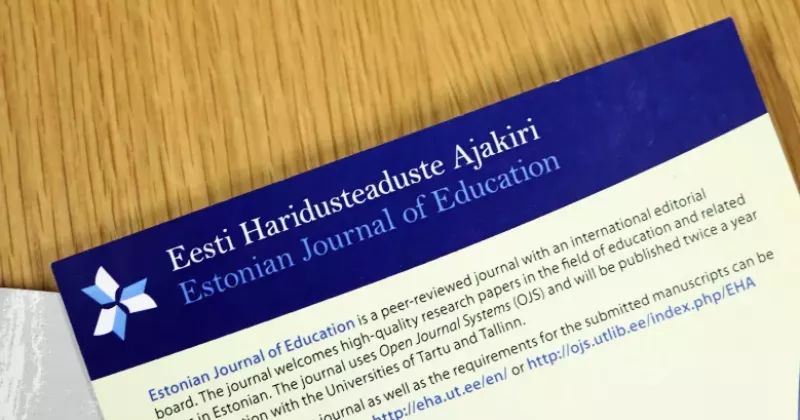Get on the train! - Workplace learning in focus – Interview series
Original language: Hungarian
Reading time approximately 8-10 minutes – read, like, comment!
Workplace learning in the spotlight – Interview with the head of Baross Gábor Educational Centre
The Hungarian and German EPALE National Support Services have launched a joint thematic week with a focus on workplace learning. Annamária Kiss, the Ambassador of EPALE Hungary conducted a series of interviews with five organisations investing a great deal of effort in training their employees.
The Baross Gábor Educational Centre (hereinafter: “BGOK”) operates as an organisational unit of MÁV[1] Service Centre Zrt. (hereinafter: “MÁV SZK”). The MÁV corporate group consists of MÁV SZK and two other large companies, MÁV Zrt.[2] and MÁV START Zrt.[3] BGOK is responsible for providing training to the above-mentioned Group members, its other key priority being to efficiently develop its own staff, comprising nearly 200 people. László Dobás, head of the Educational Centre, presented the extensive scope of BGOK’s activities.
How long have training courses been held in the Baross Gábor Educational Centre?
Educational activities have been conducted here for 130 years, ever since the building was donated to MÁV by Gábor Baross, specifically for the purpose of providing training to railway employees. 2014 was a turning point in the life of our institution, as that was the year when BGOK split off from MÁV and MÁV SZK – our current organisation – was established. Since then, we have been participating in MÁV Group’s training program as a service provider.
What educational activities does the organisation conduct within the MÁV Group?
The courses we provide are classified as internal training, and are subject to separate internal accounting. Although all three companies have their own training unit, their role is mainly restricted to preparing the training plans. BGOK then receives those training plans which it has sufficient resources to implement. A training schedule is compiled based on the plans received.
We pursue three core activities: basic training, recurring training and vocational training, which are complemented by e-learning as our fourth line of activity. All new employees are required to participate in basic training, where they acquire core vocational skills before taking up their duties. The duration of basic training courses varies: they may take no more than three months, but may also last up to a year and a half. Generally, our more difficult courses start with a one or two-week preparatory period, where the trainees get acquainted with the technical language of railway, only starting the actual core vocational training thereafter.
The second category includes recurring training. Railway is a dangerous work environment, and therefore, those occupying railway-related jobs are required by law to participate in ongoing training once a year. For instance, switch operators must attend 30 hours of compulsory training to maintain the level of their expertise. For us, this task means needing to provide courses for nearly 25,000 employees, which mainly takes the form of lecture-style instruction. Currently, we are working on providing these courses on an e-learning platform as well.

In the course of our vocational training, we work with full-time students of vocational schools. This task constitutes the third major category of our activities: helping students acquire the practical skills associated with their vocation in training workshops.
In addition, the Hungarian railway has a long tradition of providing advanced training to officers. This is not a part of the higher educational system; rather, it is a form of advanced training which has been organised and held in this building for railway employees for the last 130 years.
I usually call our e-learning courses the fourth category. Our training materials on occupational safety, fire protection and related subjects are available on our website. E-learning is mainly relevant to our 10,000 employees performing administrative work. They also have training materials available for improving their digital skills, such as the use of the SAP system. Last year, we processed over 100,000 applications for our training courses, which is rather a substantial number.
What type of content is conveyed during recurring training courses?
Our organisation operates on the basis of directives, and therefore, updating directives has a high priority. The participants of recurring training courses typically study a specific section associated with their specialty. This also includes accident analysis, which is used to prepare our colleagues for what they should focus on during performing their work. This topic is specifically aimed at accident prevention.
How can employees register for the training courses?
The aforementioned training calendar lists the starting dates of the courses scheduled for the relevant time period. For instance, if a company needs a switch operator, we will inform them of the starting date and venue for the relevant training course. This information is generally sent by e-mail and through our IT systems to the training division, which will then compile and sends us the applicants’ numbers and relevant information.
How are BGOK’s educational support services structured?
Our human resources include nearly 100 full-time trainers, 30 training organisers, 40 vocational trainers employed in formal education, and 7 developers of e-learning training materials and courses.
In addition to our central building in Budapest, we also hold courses in five other major Hungarian cities: Debrecen, Miskolc, Pécs, Szeged and Szombathely. In addition, we can also provide accommodation in Budapest and Miskolc, allowing employees to more easily participate in longer training courses. Our infrastructure also includes training workshops in a number of cities, including Budapest, Szolnok and Újszász. We are continuously working on developing our training infrastructure. Recently, we have renovated our training venues to create an environment for our courses which is truly up to 21st century standards.
IT support is available for the administration of our courses. We use an SAP system called Learning Solution. All documents directly related to the courses are stored here, and our clients are also connected to this system. Whenever we start a training course, it is displayed on the interface. Registration is then performed by the training departments of MÁV Zrt. and MÁV START Zrt. We use the data of registered participants to prepare training schedules, vocational training contracts, etc.
How do you train the trainers?
As mentioned before, the majority of the internal training courses within the corporate group is held by the 100 trainers employed by our organisation. Therefore, we consider their training is to be of utmost importance. Generally, we assign universities with the task of conducting courses for our trainers. We compile the syllabus internally, based on satisfaction surveys and feedback from our trainees and clients. The course syllabus mainly focuses on conveying knowledge related to methodology, pedagogy, informatics, as well as certain aspects of skills development, with the main emphasis having been on assertiveness and time management thus far. The training usually lasts one week.
Furthermore, trainers are also required by law to participate in additional training. This takes the form of one eight-hour course. However, learning opportunities are not restricted to compulsory courses. The training plan also includes options such as participation at a trade conference or a training seminar.
Do you ever request assistance from external partners to conduct a course?
There are certain training needs – such as IT or other types of training requiring specialised knowledge – where we use external service providers. In such cases, we conclude an assignment contract with the trainer or instructor in question. In addition, MÁV Group’s trainer teams are responsible for ordering courses that we do not provide, as well as registering for conferences.
What opportunities do MÁV employees have for advancing their career?
The development of a railway career path model is underway. The aim is to show employees how they can progress – both horizontally and vertically – from one area of employment to another within the organisation. This usually involves completing a new basic training or officer training course. The members of the MÁV Group also support those intending to continue their studies at a college or university. We are not involved in the preparation of individual training plans, as that is the responsibility of the HR departments of the MÁV Group members.
I do, however, negotiate the training plans for the 200 people working at BGOK with MÁV SZK’s HR department. Once the career path model is ready, it will provide us with the great advantage of knowing exactly which positions each individual employee is transferring to. These data will help us better plan for what types of training courses we need to launch, and will also make internal staff management substantially easier.
How do employers benefit from supporting workplace learning?
Providing ongoing training for your workforce improves long-term employee retention. If your employees see that they can progress in their career and receive the necessary vocational training, this will greatly increase their engagement and loyalty. The high quality training that we provide is essential for achieving this.
How do you motivate employees to learn?
In most cases, we pay the fees for the course, meaning that employees need not undertake any financial burden at all. We generally also conclude a study contract with the employees. The career development opportunity itself also acts as a motivating factor. Recently, a new motivational tool has been introduced: an employee passing an examination with good results will also receive payment for it.
We have our own textbooks, developed to help trainees with their studies. Our trainees come from highly different age groups, some very young and some middle-aged. All trainees come from different backgrounds, with different skills. As railway examinations are difficult and strict, we have also prepared a publication summarising learning methods.
We have devoted considerable effort to make our courses practical; we have a train engine simulator and safety device simulator in our training workshop in Budapest. Here, in the main building, we also have a model railroad table where trainees can practice using model trains. Our plan is to make railway-related vocational training available in the form of e-learning training materials as well.






Munkavállalók, a sikeres szervezeti működés kulcstényezői